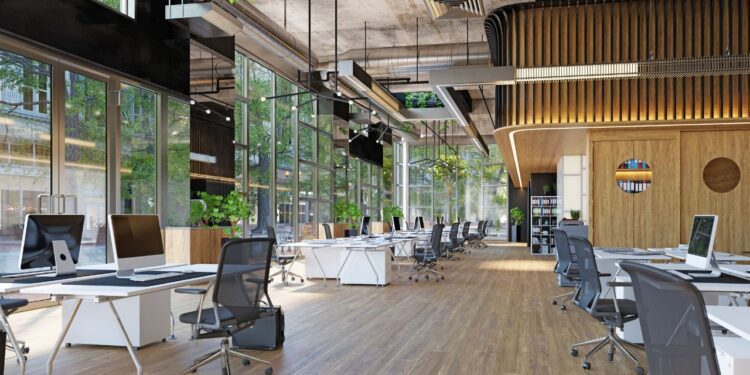What’s going on:
A recent study conducted by infinitSpace and The Instant Group, in collaboration with independent market research firm Censuswide, surveyed 250 commercial landlords in the U.K. about their current energy sustainability practices, according to Property Wire.
The research aimed to identify the most popular energy-saving measures and future priorities as the commercial real estate sector moves towards net-zero emissions. The most common measure already in place is setting waste management targets, with 31% of landlords implementing them. Other popular measures include flex space and thermal efficiency measures, with 25% of landlords having already implemented these.
The study also revealed that 67% of landlords plan to incorporate flexible workspace in the future.
Why it matters:
The shift toward more sustainable and energy-efficient practices in the commercial real estate sector is crucial for several reasons. Firstly, it aligns with global efforts to reduce carbon emissions and combat climate change. Secondly, it responds to increasing demand from tenants who are conscious of their environmental impact and want their office spaces to reflect their sustainability goals. Lastly, it offers a commercial opportunity for landlords to maximize space efficiency and provide a green edge, which can be attractive to potential tenants.
How it’ll impact the future:
The move towards more sustainable practices in the commercial real estate sector will have significant implications for the future. As energy costs remain high and regulatory pressures intensify, landlords who adopt energy-efficient measures will be better positioned to ensure the continued success of their businesses. Furthermore, the growing popularity of flexible workspaces could reshape the traditional office environment, offering more adaptable and efficient spaces that cater to the evolving needs of businesses and employees.
The rise of flexible workspaces and the emphasis on sustainability will likely influence the future of the workforce. Employees may find themselves working in environments that are not only more adaptable to their needs but also align with their values regarding sustainability. This could lead to increased job satisfaction and productivity. Moreover, companies that prioritize sustainability and flexibility in their office spaces may attract top talent, further shaping the workforce of the future.
Beyond the immediate workplace, these changes could have broader implications for the workforce. As more businesses adopt flexible workspaces, there could be a shift in work patterns, with more employees working remotely or in shared spaces. This could lead to changes in commuting patterns, work-life balance, and even the geographical distribution of jobs. Additionally, the focus on sustainability could spur innovation and create new job opportunities in the green economy.














